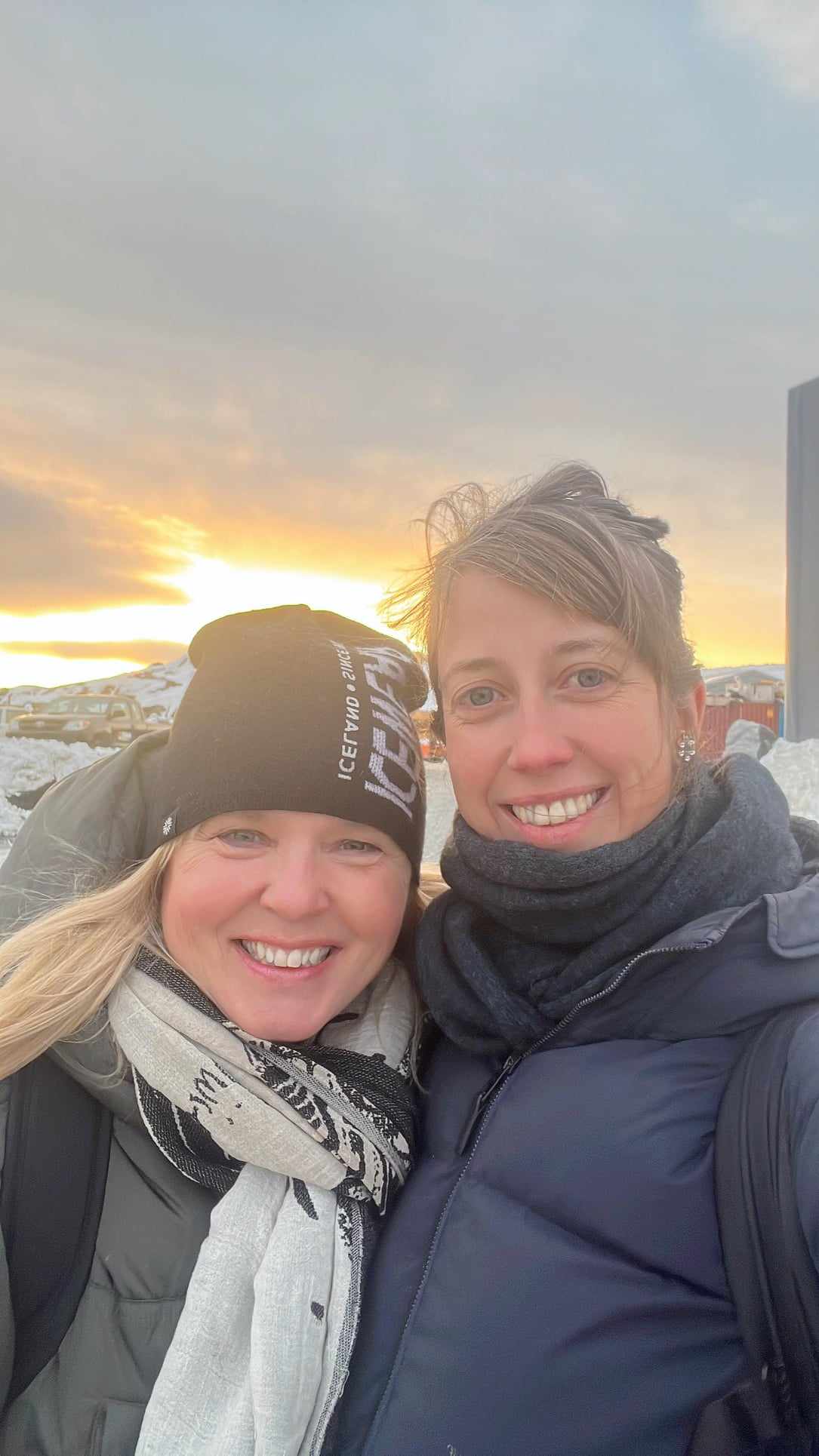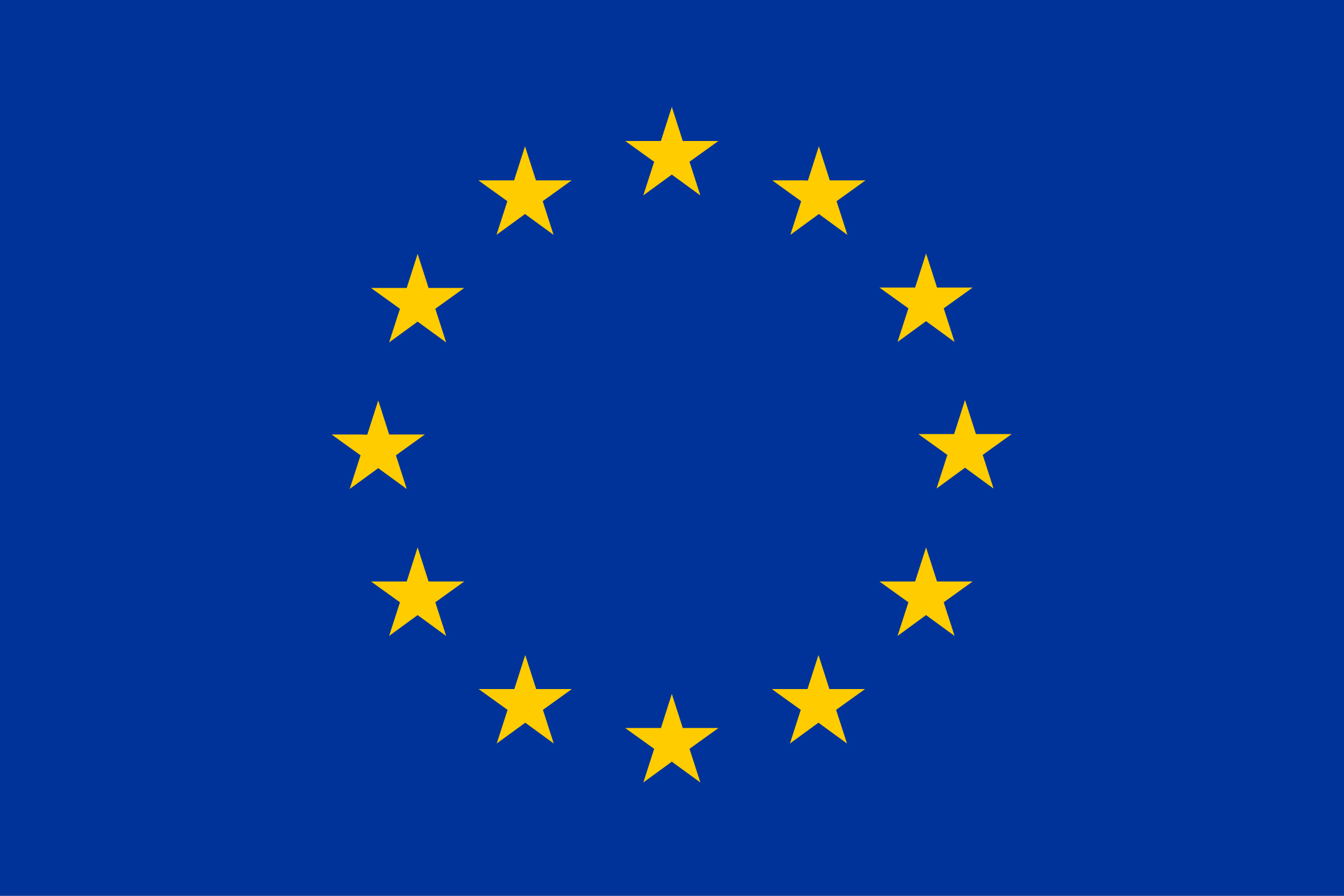Over the course of the Nunataryuk project, 2017-2023, we have formed close collaborations with community stakeholders in Greenland including the municipality of Avannaata and other public sector agencies, private sector entities, cultural institutions, and local community members.
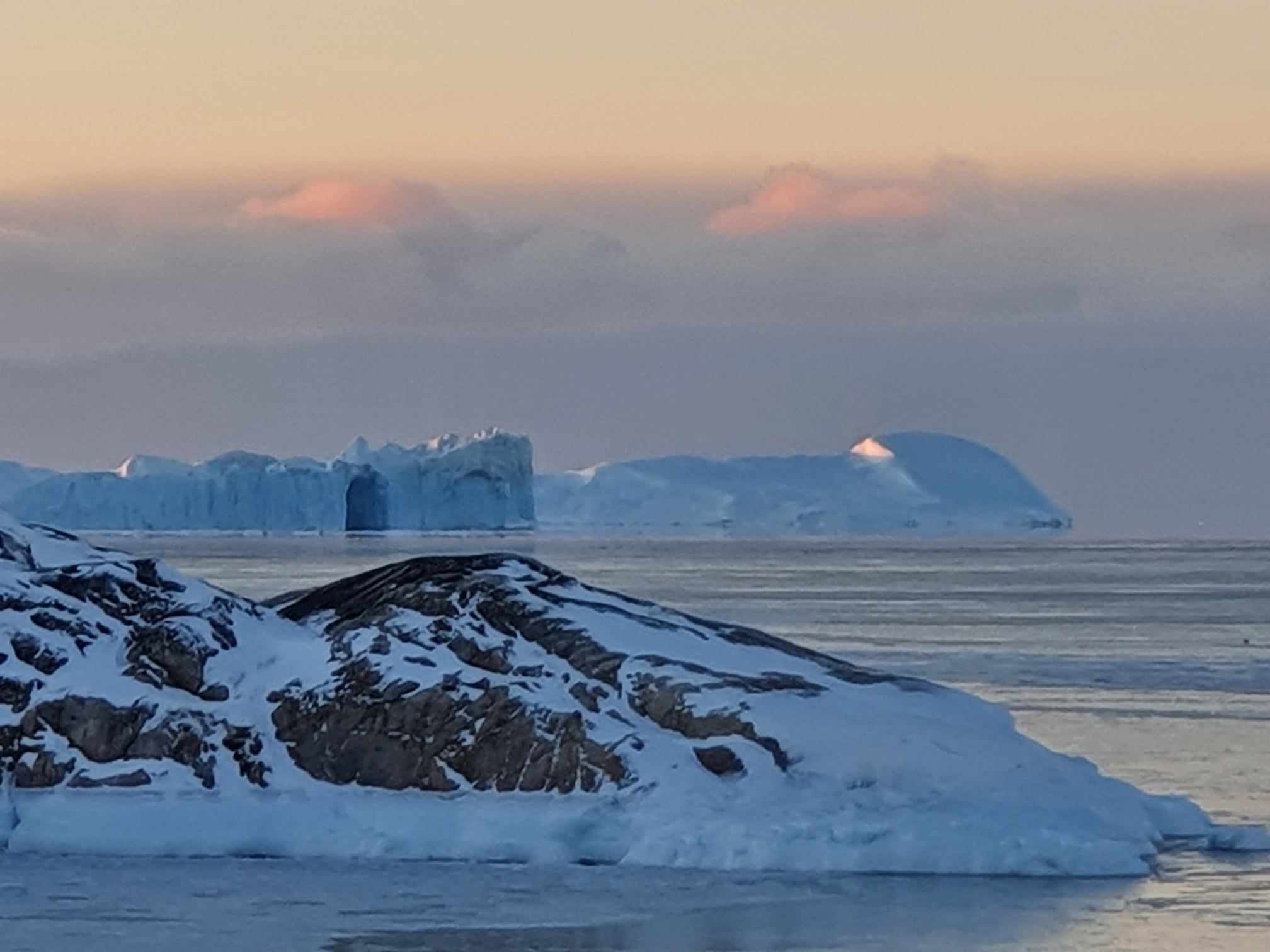
Close collaboration and co-production have been central to the methodological approach employed in our multidisciplinary and multi-stakeholder driven permafrost project. This approach has been integral to achieving a legacy for our research.
In our fieldwork in Nunataryuk, acknowledging complexity has been particularly important. Multidisciplinary teamwork with backgrounds ranging from economics, anthropology, engineering, psychiatric nursing, medical sciences, and community development, has been crucial. At the same time, the demands placed by time and how we engage with locals have been significant. Learning from each other, especially when different types of knowledge converge in co-production and across disciplines, has taken its time in the field and working across disciplines, even in optimal circumstances, has been challenging at times due to differing expectations.
In Nunataryuk this multidisciplinary and multi-stakeholder approach was however essential given the nature of the societal challenge in focus and the sheer complexity of our research objectives. It was aided by our prior work and knowledge in West Greenland, as several of us had an established network of contacts and stakeholders to work with.
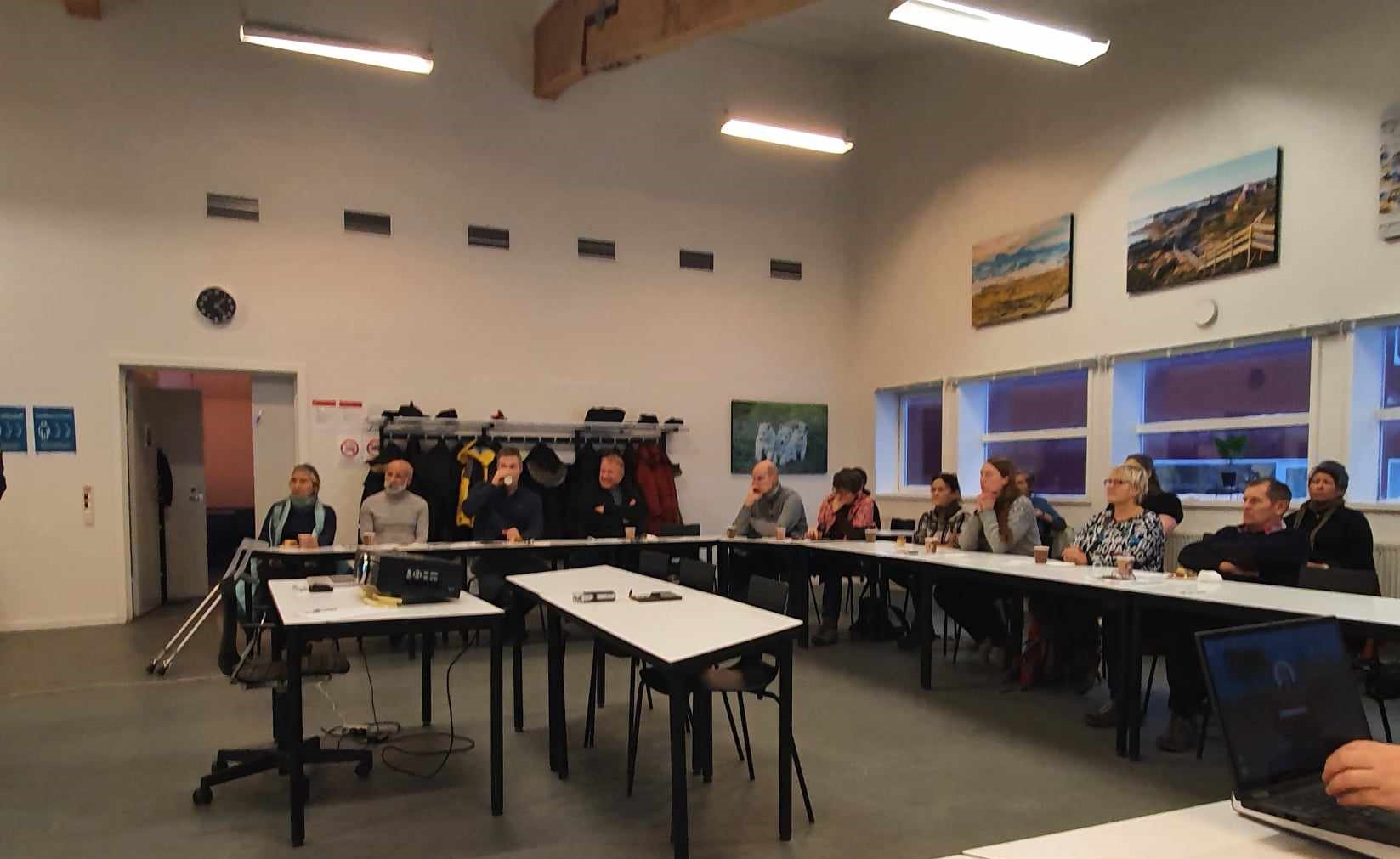
Our first meeting with the community of Ilulissat took place in April 2018, after the kick-off of Nunataryuk in November 2017. We were invited to a scenario-building workshop led by Dr. Morten Rasch from University of Copenhagen entitled “Sustainable Adaptation to Climate Change and Globalization in Disko Bay, West Greenland – Identifying Opportunities and Threats”. The workshop, conducted in Danish and Greenlandic, had about 40 participants - scientists and local community members (including fishermen and hunters from Qeqertarsuaq island). It was an invaluable opportunity for the two of us to meet representatives from government, industry, the private sector, and local institutions in order to kick-start the scoping work for Nunataryuk and to establish a network of contacts. This enabled us to develop a relationshop with several stakeholders at the onset, and a better understanding of their key issues and challenges on site.
Once we began the actual Nunataryuk research there was already considerable trust built among researchers and locals because of these earlier engagements, which helped facilitating the planning of our first community event in 2019. This 2019 workshop was designed to inform and discuss questions related to our research plan, and to identify critical issues and challenges linked to the field work and co-production with local stakeholders.
Consequently, co-production was structured around several central pillars. The first one laid the ground on what to do by acquiring knowledge about issues and challenges, as well as the social, environmental, and economic background, utilizing methods such as scenario workshops and scoping exercises with the local community. The second pillar made sure that our dialogue and discussions throughout the work were grounded in trust, fostered sharing and appreciation of different types of knowledge and respected their value in arriving at meaningful results for adaptation strategies and indicators. The third pillar facilitated inclusion of different points of view, for each workshop we arrived with very defined goals and objectives that were articulated ahead of the field visits and in consultation with our network of stakeholders, many of whom would provide critical advice on several aspects of the field plans. Finally, the fourth pillar fostered mutual learning, as we all learned together throughout the process – scientists and stakeholders.
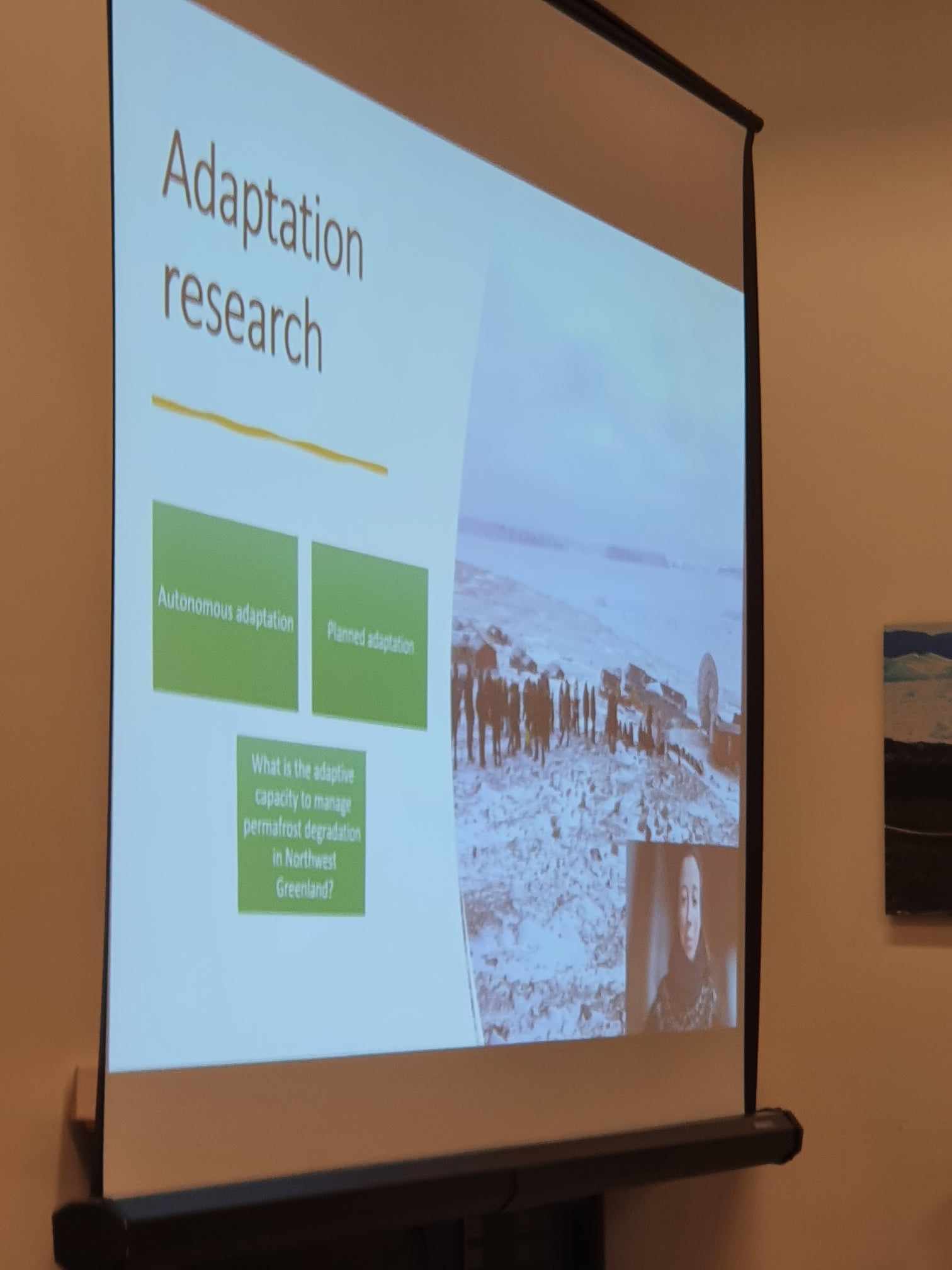
On October 24-29 2023, right before the end of the project, we revisited Ilulissat, Disko Bay for a final community engagement with the purpose of presenting the project results and to engage with the community in discussion on the results from several previous field seasons.
Special emphasis was placed on presenting data on adaptation and indicators. This was done to enable local validation of the results and to provide an opportunity for researchers and stakeholders to end the project reflecting on what had been accomplished. In addtion, this final community meeting gave us an opportunity to look ahead to new projects starting in 2024, among others the EU Horizon Europe ILLUQ projet.
As part of the co-production process, returning with results and facilitating joint reflection is an important final step. As we returned to Ilulissat for this final meeting we found that locals were open and welcomed the discussions on the project findings. Several stakeholder interactions from the municipality and other public institutions confirmed the validity of the Nunataryuk project's results, indicators, and adaptation measures. They emphasized the importance of collaborative efforts in dissemination and awareness-raising, and expressed a commitment to ongoing collaboration in future research. The schools emphasized the significance of education and knowledge, expressing a desire to continue working with us and to involve students more actively in the future. Stakeholders from the private sector, including construction and transport companies also verified the project's results in Ilulissat and declared interest in continuing collaboration in the context of new project funding.
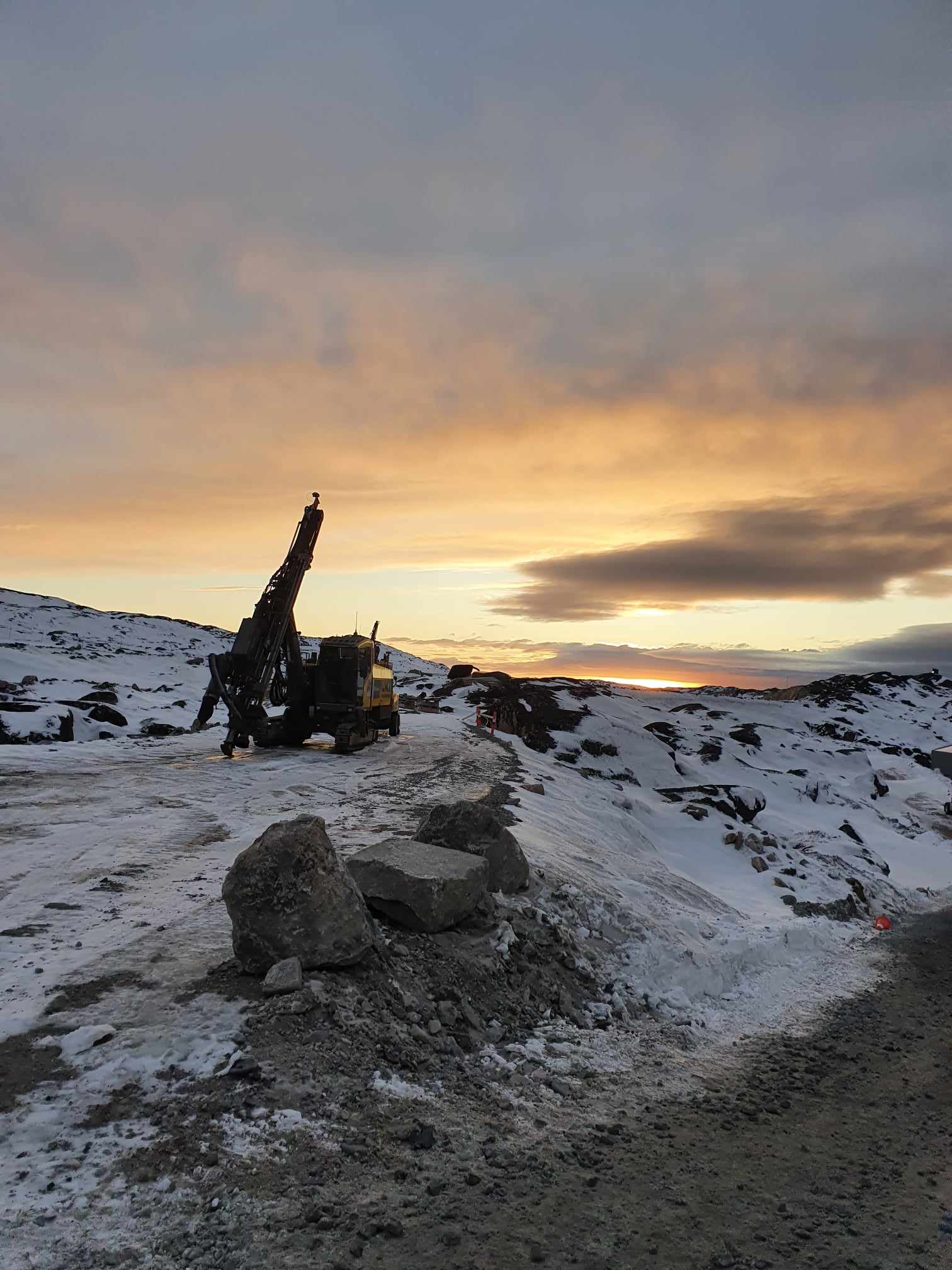
The scientific assessment encompasses the community's adaptive capacity, long-term planning, and short-term strategies. While many challenges arise from the changing landscape, it is not the lack of technical solutions that hinders progress. Instead, the primary obstacle lies in the insufficient allocation of human and financial resources to effectively address permafrost-related issues. Many communities possess the technical knowledge to mitigate the impact of thawing permafrost, but without adequate resources, these solutions remain out of reach. Also, attributing certain costs solely to permafrost thaw is a complex endeavour. Climate-related factors, beyond permafrost thaw, contribute to damages in various forms. Housing, infrastructure, power generation and water supply were all areas addressed by several stakeholders, and topics related to maintenance and repair costs were emphasized as indicators of permafrost thaw.
The Ilulissat Icefjord, the nature, and the ocean surrounding the area and its meaning to locals has also been explored over the course of our project, as we interviewed fishermen and hunters, skippers on trawlers, tour boat operators, and locals enjoying nature. Thus, before leaving Ilulissat we also reconnected with a local tour operator to share our results on permafrost thaw and the impact on culture and closeness to nature. Even as a very experienced driver, with his team of 12 sled dogs, the operator expressed concern for the future of Ilulissat. He had participated in a climate conference in town just a month earlier where he provided testimony to the changes experienced by locals. We joined him on a dogsled tour to an area where permafrost thaw can be readily experienced, and during the break, before heading back, he talked about his experience with tourism, opportunity to engage in cultural activities, going dogsledding, and his concerns for the future and the next generation. He talked about how dog sledding has become impacted by permafrost thaw, and how locals and private tour operators find alternative routes to avoid areas where accidents can happen due to permafrost thaw. Together we were able to verify that climate change impacts have changed the amount of time dog sledding and snowmobiling can be safely done, and particularly, that it may take longer to get to hunting and fishing grounds due to necessary detours.
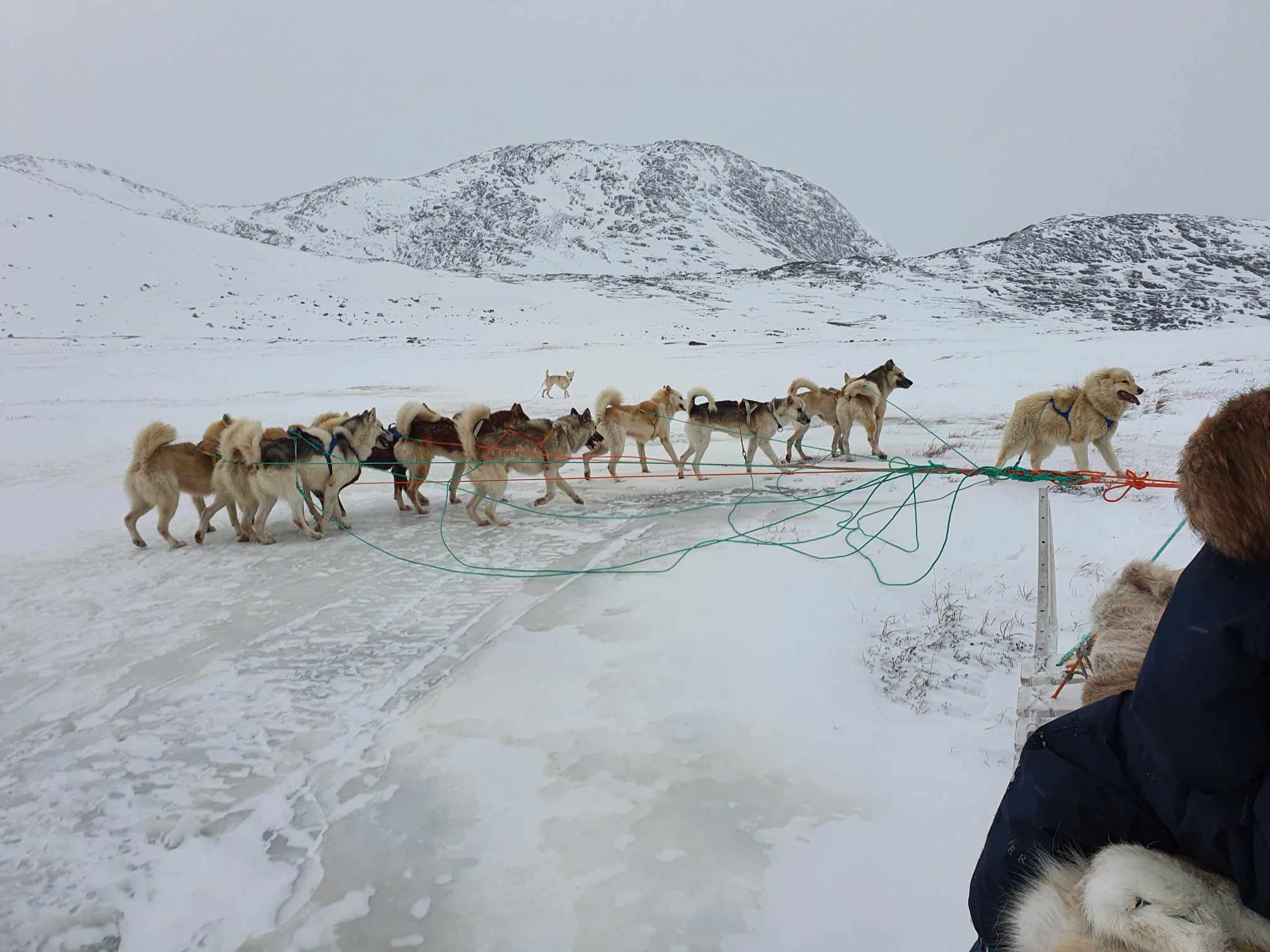
As we approach the holiday season and the New Year, we can look back to an amazing field site where we have had the opportunity to collaborate on some of the most critical climate challenges facing the arctic coast today. We have established extensive networks with highly knowledgeable, and informed stakeholders, who have generously contributed their time to engage with our interdisciplinary team in a variety of ways. Together we have discussed solutions to address the impacts of climate change where changes are already affecting local lives, their culture, economy, and society.
